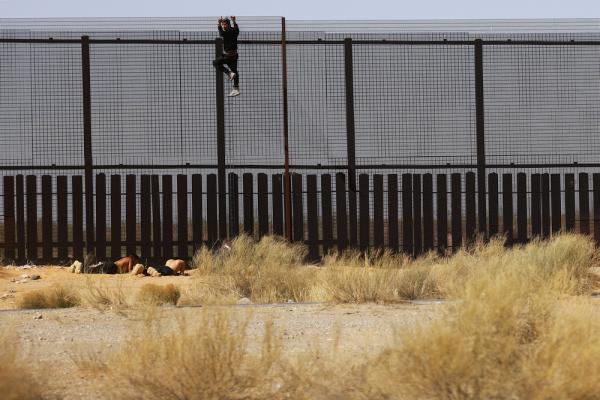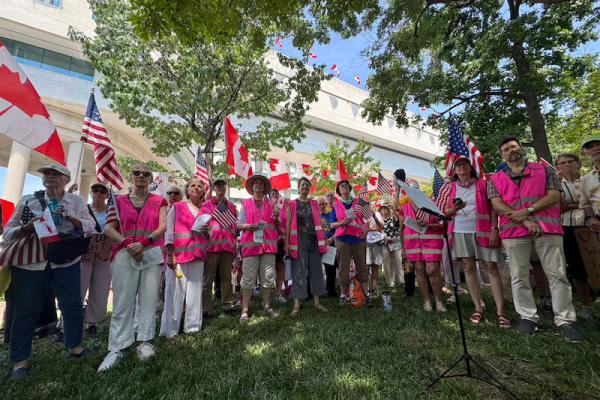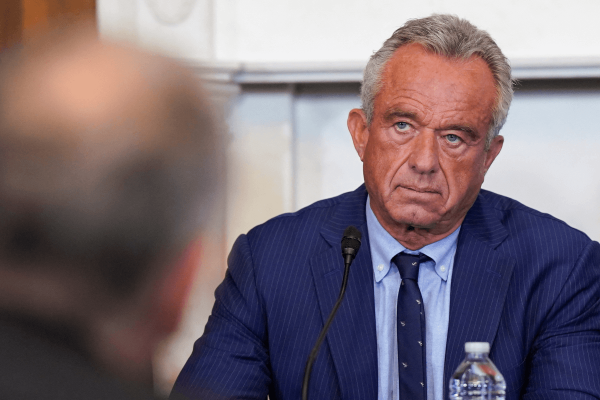A federal judge has ordered the closure of the notorious immigration detention center known as “Alligator Alcatraz,” citing environmental violations and opposition from the Miccosukee Tribe. Progressives are celebrating this as a significant triumph for Florida’s Everglades, Indigenous communities, and the migrants who have endured the detention center’s conditions. But is this court ruling truly the sweeping victory that advocates claim?
Soon after the federal judge’s ruling on Alligator Alcatraz, an appeals court declared that the detention center can “remain open,” as countless other detention facilities continue operating across the country—some housed in Army bases that once served as concentration camps for Japanese Americans during World War II.
Kilmar Abrego Garcia, who the Trump administration illegally deported to a prison in El Salvador in March, returned to the United States in June thanks to the advocacy of his lawyers, family, and activists, only to be detained again as the Trump administration remains hellbent on deporting him despite his lack of a criminal record. In response, a federal judge blocked his deportation until a hearing can be held to determine whether he can contest his removal.
Our immigration “system,” lacking significant legislative updates for more than two decades, persists in criminalizing human movement instead of confronting the deeper forces behind migration: the legacies of colonialism and empire; ecological degradation; the global capitalist structures that force millions out of their homelands. One truth remains inescapable: attempting to shutter a single facility or block Abrego Garcia’s deportation will not resolve this American immigration crisis. What we need is a complete restructuring of immigration as we know it. What we need is open borders.
In a conversation with theologian Ki Joo Choi, who holds the Han Chair of Asian American Theology at Princeton Theological Seminary, he argued that while progressives excel at critiquing immigration policy and identifying its flaws, they often struggle to articulate what a sufficient alternative might look like. Central to this problem is the Democratic Party’s ambiguous positions on the legitimacy of open borders and what he diagnoses to be mostly “reactive” responses to the “current administration’s inhumane treatment of migrants.”
As Sergio Martínez-Beltrán reported for NPR, much of the Democratic Party has indeed retreated from open border policies due to right-wing pressure, thus hampering meaningful progress toward a more just approach to migration.
But what exactly does “open borders” mean? According to immigration journalist John Washington, it is a “call” for policies that allow people to move freely across nation-state boundaries without restrictions, requirements, or government-imposed barriers to entry. For Washington, open borders represent the pursuit of more just treatment for migrants and the dismantling of structures that harm them.
This approach addresses two key realities, among others.
First, it recognizes that immigration is driven by global capitalist exploitation and climate change, with wealthy and powerful nations often displacing and exploiting poorer ones while polluting their lands. Migrants and refugees do not arrive without reason; many need crucial resources to survive under global capitalism and the climate crisis.
Second, restricting human migration violates the fundamental human right to migrate and remain. As Washington writes: “Humans have always been roaming, curious, and on the run.” In this regard, the very structure of modern nation-state borders has not only restricted the “innate” human reality of mobility but also incarcerates migrants within cycles of fleeing their homes, facing detention, and risking deportation.
READ MORE: What to Do if ICE Comes to Your Church
This two-pronged approach thus requires a long-term commitment to restructuring the global political and economic order. We must reject short-term measures like mass deportation policies that pursue punitive actions against migrants, which ultimately fund global capitalism and fuel climate change. As such, open borders are not simply about improving migrants’ quality of life, but about restructuring a global capitalist reality that poses an existential threat to all of us.
Washington contends that opening our borders not only offers a more ethical response to migration but advances a better future for all people in the struggle against global exploitation and moves us toward planetary healing.
Yet, under the current Republican administration and President Donald Trump’s mass deportation agenda, “open borders” has been transformed into a political slur, with Trump and others wielding the phrase to blame Democrats for perceived immigration failures during the Biden era. Yet this rhetoric serves as a distraction from the root causes of global migration by scapegoating migrants, refugees, and non-Republicans for the social and economic crises facing everyday Americans while obscuring the true culprits behind the suffering of both migrants and working-class Americans: capitalist structures that profit from environmental degradation and exploitation of the poor.
This misleading discourse also obscures public understanding of what “open borders” actually entails and the anti-capitalist contributions that open borders would make to both migrants and everyday Americans.
As a Christian, I also find that our theological and moral purview must no longer be determined by border-logic, especially if we confess to believe in a God whose grace is borderless.
As a Christian, I also find that our theological and moral purview must no longer be determined by border-logic, especially if we confess to believe in a God whose grace is borderless.
For constructive theologian Chris Boesel, God has eternally decided to be “for all” creatures in Jesus Christ. This divine decision necessarily includes what liberation theologians call a “preferential option for the poor,” which, according to Boesel, means being “on the side of the denied and deprived and against the privileged and powerful.”
In other words, if we are to heed God’s grace that touches every single creature in and through Christ, it follows that we refuse to prioritize those whose visas we approve and deprioritize those we decide to deport. As evinced by the Trump administration’s recent restrictions on Palestinian visa applicants—many of whom are in dire need of aid and safety amid ongoing genocide—our current immigration system lacks attunement to the radical ethics that God’s grace demands.
Rather than remaining complicit in the Trump administration’s cruelty, as pastor-activist Michael Woolf wrote for Sojourners in 2021, we must begin by attending to the “border crisis in our hearts”—a crisis that has led us to “contradict God’s command that we welcome immigrants and refugees, showing them the same compassion we would show a family member — or even ourselves.” What this means is to reject border-thinking and embrace the radicality of open borders, as shaped and formed by a God who also rejects border-thinking in service to the universal scope of divine grace.
It was this understanding of God’s borderless grace that the late Swiss theologian Karl Barth drew upon in his resistance to Nazi Germany. In a time when Jewish people were being incarcerated, deported, violated, and murdered, Barth understood that the Nazi regime’s genocidal violence was fundamentally incompatible with the moral demands of God’s grace.
Barth contended that God’s grace goes all the way into what he called “the far country,” even to the point of death on a cross, where God stood in radical solidarity with all creatures against the forces of sin and death. Indeed, this is God’s grace that transgresses borders and dismantles them so that God may stand with those whom Latin American theologian Francisco Javier Pelaez-Diaz calls the “crucified peoples” of our time: migrants.
Open borders are not a fictitious dream; open borders reflect the reality of God’s own borderless decision to be for all creatures—especially those whom we have crucified again and again.
Whether we have forced migrants from their homelands through climate change or genocidal warfare, only for them to arrive and face detention and deportation, these are the crucified peoples of our time with whom God stands in solidarity through the person of Jesus.
Thus, it is time for us to confront the violence we have wrought. It is time to follow the grace of God that transgresses every border we have built. It is time for us to be clear not only about this inhumane immigration system we oppose, but about what we want to replace it.
It is time for us to declare that we want open borders.
Got something to say about what you're reading? We value your feedback!






